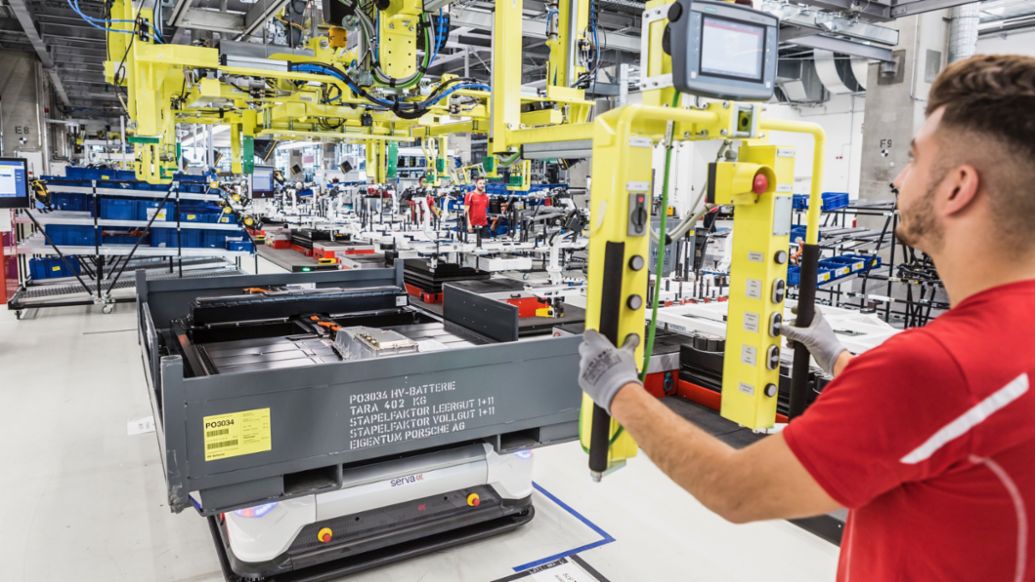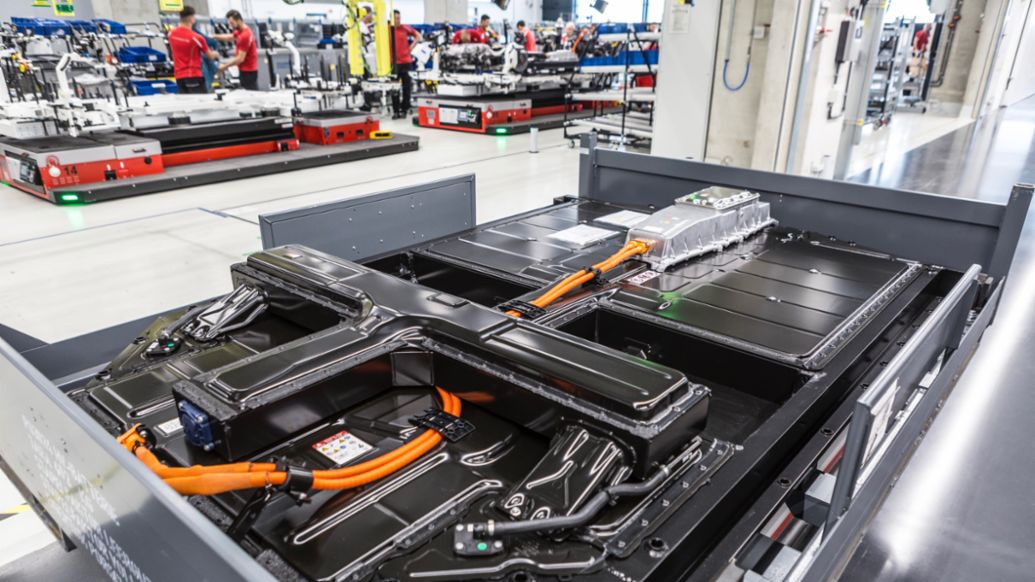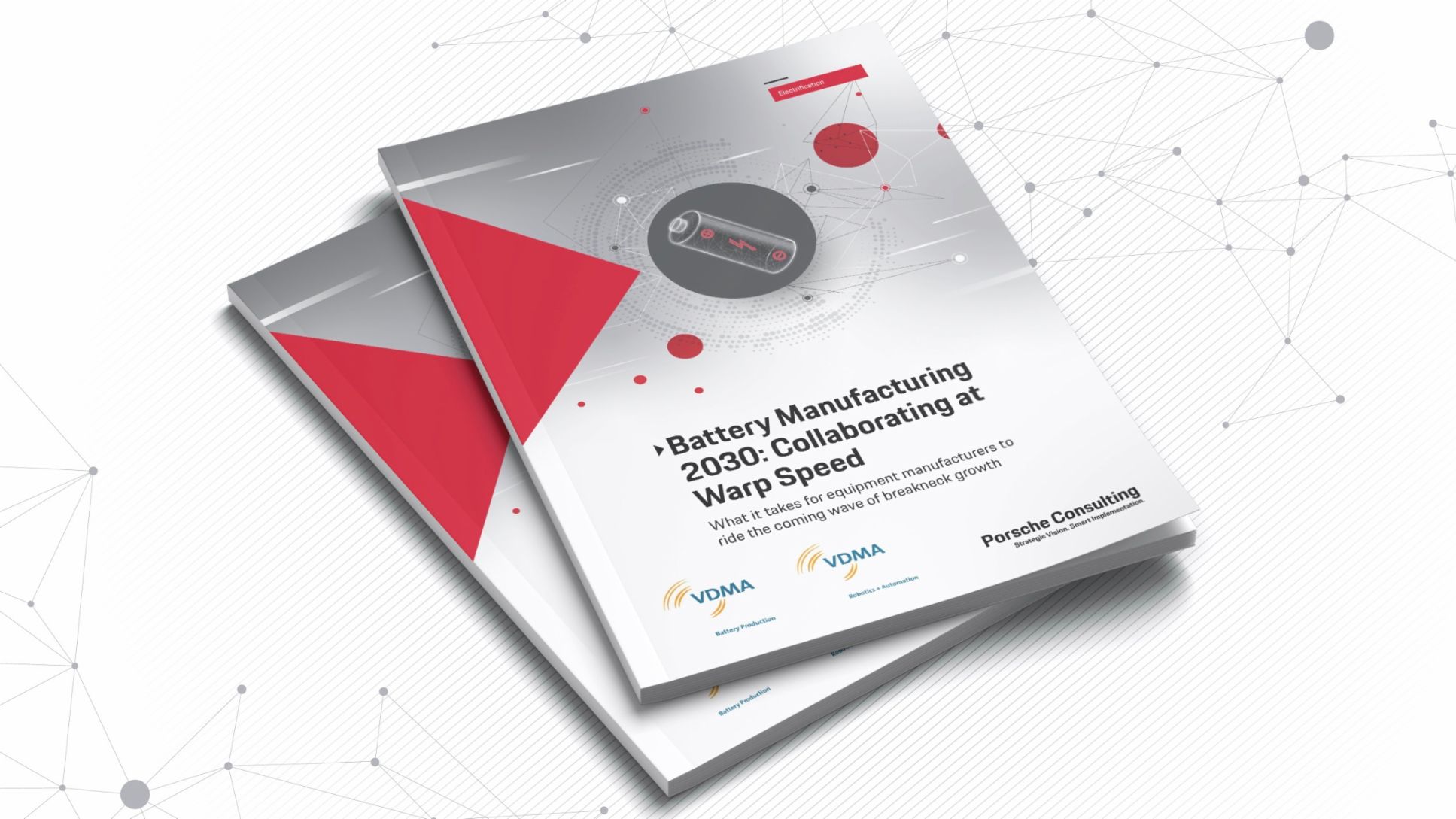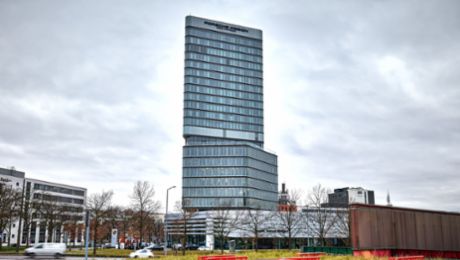There is a historic growth opportunity for German and European mechanical and plant engineering firms. A new study by Porsche Consulting in cooperation with the VDMA shows how it can be used.
Electric powertrains will play a decisive role worldwide in the future of mobility, especially on the roads. The green electricity for this will mostly be stored in batteries. The market for such batteries, mostly based on lithium-ion technology, will grow globally from around 20 billion euros per year today to around 550 billion euros per year by 2030. The rate of growth is breathtaking: While the semiconductor industry once took around 40 years to develop, with batteries it will only be around ten years.
200 battery factories are under construction
Approximately 200 battery factories are under construction or being planned worldwide. At the moment, they are primarily equipped with production technology from Asia. Chinese mechanical engineering companies are currently setting the standard as complete suppliers. Only 8 percent of the high-tech equipment for such factories comes from Europe. This proportion is too low to have a significant influence on technical development and to create a second cluster for battery technology that is based in Europe. This would require a permanent market share of about 20 percent. This is evidenced by the analysis of the battery experts from Porsche Consulting and the VDMA in the study “Battery Manufacturing 2030: Collaborating at Warp Speed.”

The study examines solutions to prevent technological dependency in this field that is so crucial for the future. After extensive analysis of the technology and providers, forecasts based on their own market models and a series of interviews with market participants, it is clear that the cooperation of the parties involved plays a decisive role. “Only if European mechanical engineering firms succeed in jointly offering integrated factory solutions will they be able to hold their own against the competition from Asia,” says Gregor Grandl, Senior Partner at Porsche Consulting and co-author of the study. “Technologically, European industry is on an equal footing, but companies from China are already offering turnkey battery plants.” This reduces interfaces and thus the time and financial risk during construction.
The opportunities for mechanical engineering companies are huge: In order to maintain a market share of just 8 percent in the battery market during a rapid ramp-up, growth rates of 33 percent per year would be necessary. To reach a 20 percent market share, companies would have to grow faster than the market. A roughly 50 percent increase in sales per year would be necessary — and possible. The market volume for machinery and plant manufacturers in the battery sector alone is 300 billion euros in the period to 2030. Success in this competitive environment would secure Europe permanent access to the important future technology of batteries and create many jobs in the process.

German and European mechanical engineering firms have recognized this and are actively addressing it. “The foundation of our industry lies in close collaboration between mechanical and plant engineering firms and their customers,” says Hartmut Rauen, Deputy Managing Director of the VDMA. “This partnership not only generates knowledge, but also innovation.”
Growing demand for innovative battery production solutions
Highly specialized companies such as Manz AG of Reutlingen, Germany, are vigorously pursuing this path: “As a European mechanical engineering company, we have invested specifically in battery production in order to be prepared for the rapid market ramp-up mapped out in the study,” says Martin Drasch, CEO of Manz. “The joint venture with the Dürr and Grob groups will strengthen our position on the market and enable us to respond efficiently to the growing demand for innovative battery production solutions for gigaprojects.”
“Customers’ exacting requirements for turnkey suppliers require a rethinking in the ramp-up phases for this industry,” says Stephan Eirich, President of Maschinenfabrik Gustav Eirich GmbH. “This poses new challenges even for experienced machine and plant engineering firms, but we’re up to the task.”
The study is available for download here.
VDMA
The VDMA represents more than 3,600 German and European companies in the mechanical and plant engineering industry. The industry is characterized by innovation, a focus on exports and SMEs. The companies employ a total of around three million people in the EU-27, including over 1.2 million in Germany alone. This makes mechanical and plant engineering the largest employer among the capital goods industries, both in the
EU-27 and in Germany. It represents an estimated turnover of around 860 billion euros in the European Union. Some 80 percent of the machines sold in the EU come from a manufacturing facility in the internal market.
VDMA Robotics + Automation represents one of the most dynamic and fastest-growing sub-sectors of mechanical engineering. It encompasses the three specialist groups of robotics, machine vision, and integrated assembly solutions. Its 400 member companies are manufacturers of assembly and handling technology, machine vision, and robotics.
VDMA Battery Production brings together 170 member companies working on the production technology of all types of batteries, with a current focus on lithium-ion technology.
The member companies supply machines, systems, components, tools, and services along the entire process chain of battery production: from raw material preparation to electrodes, electrode production and cell assembly to module and pack production.
Porsche Consulting GmbH
Porsche Consulting GmbH is one of the leading management consultancies from Germany. It was founded in 1994 resulting from the successful transformation of Porsche into one of the most profitable and admired sports- and luxury-car companies. Today, their experts support corporations around the world in strategic transformation and performance management. The consultants advise clients in various industries including automotive, life sciences, industrial goods, transportation, financial services, energy, aerospace, construction and consumer goods. They provide excellence in the fields of strategy and organization, brand and sales, development and technology, as well as operations from locations in Germany, Italy, France, China, Brazil, and the US. With heart and soul and a pioneering spirit. www.porsche-consulting.com





